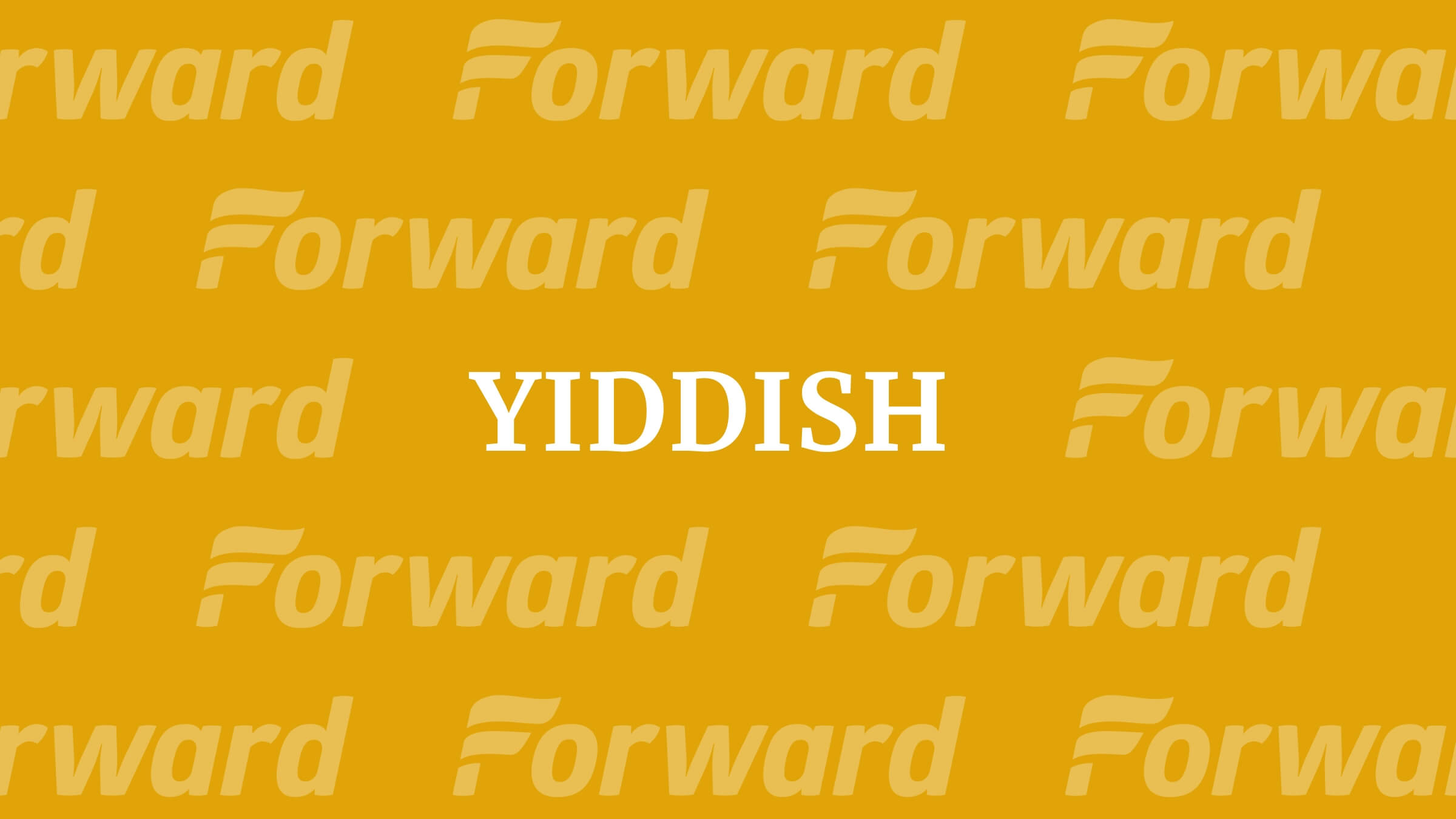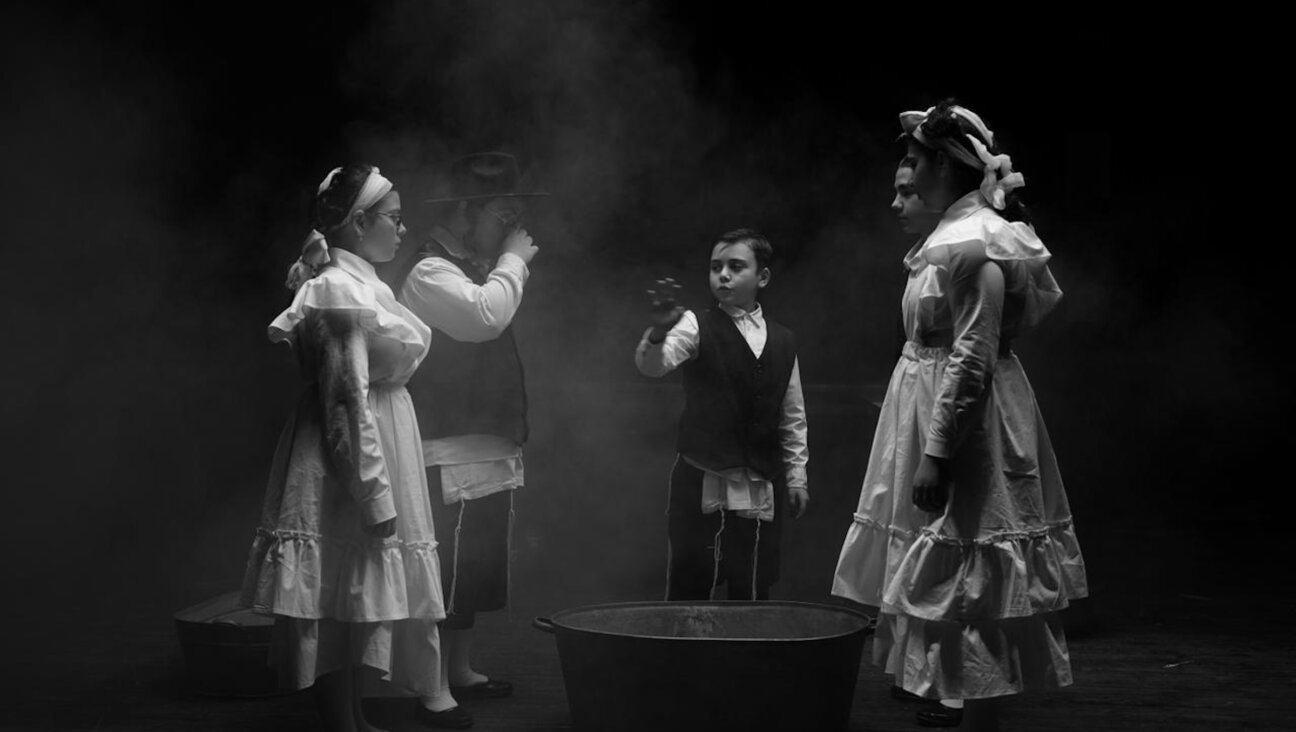The spa resort where European rebbes spent their summer vacations
Before World War I, the Marienbad resort had hotels for the rebbes, replete with glatt kosher restaurants and ritual baths

Graphic by Angelie Zaslavsky
Marienbad & Beyond
David Leitner
Published by David Leitner, 536 pages, $29.95
The small town of Marienbad, once a part of the Austro-Hungarian empire but now in the Czech Republic, earned its place in Yiddish literature thanks to a satirical piece by Sholem Aleichem in which he poked fun at nouveau-riche Warsaw Jews who imitated the aristocratic custom of spending summers at spa resorts in order to enjoy its healing mineral waters.
Before World War I, Marienbad was a popular resort for the highest rank of society. In 1907, the English king Edward VII and the Austrian emperor Franz Joseph had their so-called Meeting of the Monarchs there.
But Marienbad was popular not only among European noblemen or the Warsaw nouveau-riche. Among their distinguished guests were also Hasidic rebbes and their courts. The resort had hotels for them, replete with glatt kosher restaurants, ritual baths and other services catering specifically to their needs. The Hasidic spiritual leaders would take walks and drink the salty, bitter mineral water from specially designed mugs while discussing Torah (and occasionally worldly matters, too). The rebbes were constantly surrounded by their assistants, fixers, sons and sons-in-law, grandsons and ordinary Hasidim. Marienbad was a kind of “neutral territory,” where the Belzer, Gerer, Munkacser and Vizhnitzer rebbes could meet to discuss questions of mutual interest without undue ceremony.
The atmosphere of the old Hasidic Marienbad comes alive in Dovid Leitner’s book of memoirs, “Marienbad & Beyond.” The author’s father, Kurt (Chaim Aryeh) Leitner (1906-1988), belonged to a family that had owned several kosher hotels in Marienbad. In his youth, Opa (the German term for “grandfather,” which the author uses for his father throughout the book) met with the Torah giants of his generation. And even though the Leitners were Yekkes (German Jews), they held in high regard the distinguished Eastern European rebbes who patronized their hotel every summer. The Belzer rebbe, Yissacher-Dov Rokeach, was particularly prominent. Before World War I the rebbe traveled about 600 miles from Galicia to Marienbad every year with his son Reb Aaron and his inner circle, occupying 18 rooms in Leitner’s Hotel National.
From time to time, however, curious misunderstandings occurred because of the cultural differences between the Hasidim and the Yekkes. Moyshe-Dovid Leitner, the author’s grandfather, had noticed that the rebbe ate fish and chicken with his hands. He didn’t understand that this was the rebbe’s custom and thought that the Belzer Rebbe had deemed their silverware unkosher, so he bought a new set and ritually immersed it to make it fit for kosher dining. Bringing it over to his table, he said, “My dear Rebbe, I purchased this canteen especially for your exclusive use, and I even toiveled [immersed in the ritual bath] it myself yesterday morning.”
“I toiveled my fingers this morning!” the rebbe replied, using the word for immersing oneself in the mikvah, and continued to eat with his fingers. Many years later, in 1967, when Opa visited the Belzer Rebbe’s grandson in Jerusalem, the rebbe served him fruit and told his assistant: “For a Yekke (a Jew of German origin) you also need plates and a knife and fork.” This suggests that the rebbe had heard about the exchange years earlier between his grandfather and Opa’s father in Marienbad.
The high point of Opa’s career in Marienbad was the third Great Assembly of Agudath Israel in the summer of 1937. Over 1,000 delegates and guests from Europe, Palestine, and the United States convened in Marienbad to discuss the problems facing the Orthodox Jewish world. They already sensed that the world was standing on the precipice of a catastrophe, for which Jews would be its primary victim. One much discussed question then was whether the Agudah would be prepared to work together with Zionists and other secular Jewish organizations to build a Jewish home in Palestine.
The decision, ultimately, was no: The ultra-Orthodox held that a Jewish government in Palestine built on any foundation other than the Torah would be blasphemous. Instead, they appealed to the British government to find a place of refuge for Jews among other colonies of the British Empire.
Opa didn’t participate in the debates of the assembly at this meeting. His responsibility was merely to organize the gathering. In the photographs taken of that time, he is frequently seen in the background, preoccupied with logistics. The book itself is a treasure of rare historical photos, primarily of distinguished Orthodox Jews on vacation in Marienbad. Nearly all those in the photographs are men. Perhaps women don’t appear in them because of considerations of modesty, or maybe they were busy doing other things at the spa, like maintaining important family connections and considering suitable matches for their children. The most elite segment of the Orthodox community in that era was particularly busy during the prime season in Marienbad.
Hitler occupied Czechoslovakia about six months after the start of World War II. The Gestapo pursued Opa because of his conspicuous role in organizing the Great Assembly. He had the good fortune to escape to Poland with the help of a Polish railway worker. The Belzer Rebbe later explained that the worker was surely the prophet Elijah. Unfortunately, Elijah did not help his other family members. They were left stranded in Prague and perished in the Holocaust.
Opa spent the war years in England and afterward immigrated to Chile, where his fiancee was awaiting him. They were engaged just before the German occupation, but once the war began, he had to return to England. As a result, the couple had to wait eight years before they could reunite and marry. In the 1950s, the family settled in Manchester, where Opa opened a kosher catering business, “Leitner’s Catering.”
Dovid Leitner’s book about his father is a must-read for anyone interested in the life of the Hasidic elite before World War II. It recreates for today’s reader an aspect of the thriving, colorful world of European Jewry which was erased forever by the Holocaust.

















